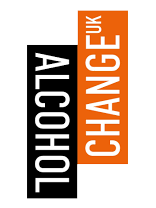Local alcohol treatment and recovery service commissioning practices and their perceived outcomes for service provision: An in-depth exploration
This project examined the experience of alcohol service commissioning processes at a local authority level in five diverse localities.
Introduction
Treatment for alcohol dependence, if delivered according to best practice, is effective and cost effective. However, only about one in five people who could benefit from treatment actually receive it. In England, there are big differences between local authorities in how many people who are alcohol dependent are treated, and these differences between areas are longstanding.
Since 2013-14, each local authority in England has been responsible for making sure their own community have access to alcohol and drug services. Local authorities generally do not directly provide the services themselves. Instead they manage the process for 'buying' the services from another organisation. This process is generally known as 'commissioning' or 'procurement'. However, many local authorities have recently faced very heavy funding cuts which may have an impact on what services it is possible to afford.
Local policy-makers are interested in knowing how other areas address alcohol-related issues for their communities in order that they can learn from the experience of others. Given both the existing differences between areas in alcohol service provision and current financial constraints, it is timely to investigate the range of approaches local authorities have recently taken to meet their responsibility to provide alcohol services, in order that these experiences can be shared.
Project aims
The aim of this project was to examine the recent experience of alcohol service commissioning processes at a local authority level in five diverse localities. We explored:
- Differences/similarities between areas in commissioning drivers and processes.
- Stakeholder perceptions regarding the strengths and weaknesses of local commissioning processes with a focus on perception of outcomes for alcohol service provision.
- Stakeholder perceptions regarding the wider alcohol service commissioning landscape including future risks and opportunities.
Methods
Five local authorities from different areas of England were selected as in-depth case studies. They were chosen to include local authorities from different parts of England and with different levels of wealth and alcohol use.
We asked people who had been involved in the most recent alcohol service commissioning process in their local authority to take part in an in-depth interview about their views of the process and its outcomes. In total we interviewed 32 people (between four and nine people per site).
In addition to the interviews, we also looked at local documents such as reports about alcohol problems in each site, strategy documents and plans for what to include in service provision contracts.
Key project information

This project was funded by Alcohol Change UK.
Dates
Final report July 2020
Research team
Associate Professor Penny Buykx, University of Sheffield and University of Newcastle, Australia
Mr Andy Irving, University of Sheffield
Dr Lucy Gavens, University of Sheffield and Derbyshire County Council
Key contact
Findings
The findings were published in the report Local alcohol treatment and recovery service commissioning practices and their perceived outcomes for service provision: An in-depth exploration which is available to download from the Alcohol Change UK website. A executive summary is also available.
You might also be interested in…
-
Gambling
The Sheffield Addictions Research Group is actively engaged in emerging areas of gambling research, seeking to understand and address the complex issues surrounding addiction and public health.
-
New project will use machine learning to help improve engagement in gambling addiction treatment
A new project led by Professor Matt Field at the University of Sheffield aims to significantly improve how people engage with treatment for gambling addiction, thanks to funding from the Academic Forum for the Study of Gambling.
-
New report on the need for gambling disorder treatment published today
Researchers at the University of Sheffield, in collaboration with the University of Glasgow, have conducted a study that sheds light on the prevalence of harmful gambling in England.
